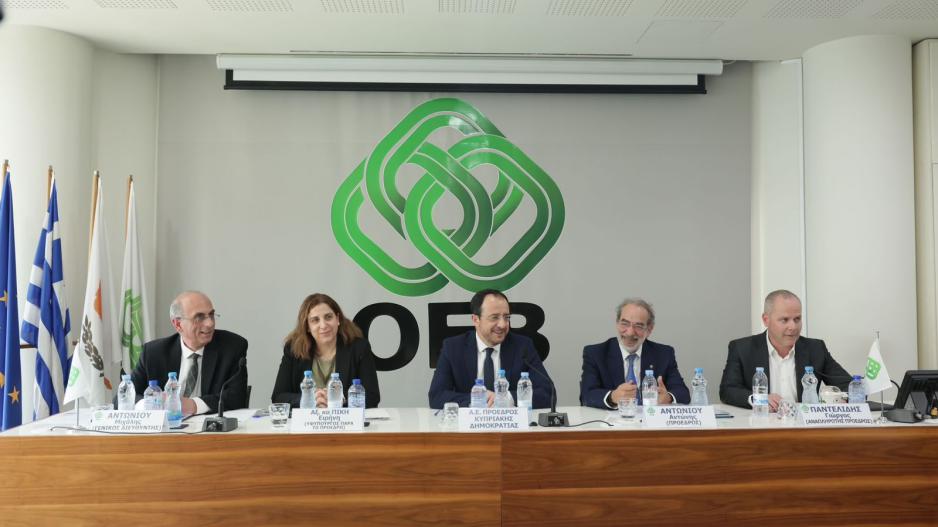OEB Details Key Employment Issues Ahead of Annual General Assembly
Businesses Continued to Face Significant Challenges at the End of 2023
The Cyprus Employers and Industrialists Federation (OEB) has outlined the employment issues it addressed in 2023 in light of its upcoming Annual General Assembly on April 23, which will be attended by the President of the Republic, Nikos Christodoulides.
OEB mentioned that businesses continued to face significant challenges at the end of 2023, with the most prominent being the shortage of labor across nearly all sectors and inflation. The Federation emphasized that controlling labor costs, which have been rising disproportionately, is a major challenge, especially with the increase in the national minimum wage starting January 1, 2024, and the ongoing dialogue on the Cost of Living Allowance.
It also said that in 2023, OEB played a leading role, receiving continuous feedback from businesses and making specific recommendations to the relevant ministries. It adjusted its objectives and strategy to support the economy and businesses, focusing on the peaceful renewal of collective agreements, containing labor costs, and safeguarding the competitiveness of the Cypriot economy.
To ensure the well-being and sustainability of businesses, particularly in matters requiring adoption, OEB stressed the importance of prudence and sincere cooperation.

The Federation also highlighted the need to educate workers in acquiring green and digital skills (upskilling and reskilling) to ensure employability and improve business competitiveness in a changing environment, laying the groundwork for sustainable economic development and future growth.
One of the key labor developments in 2023 was the 4.36% salary increase in January due to the COLA mechanism, based on a transitional agreement established between social partners in July 2017. The new transitional agreement for COLA came into effect on June 1, 2023, and is set to last until June 30, 2025, aiming for a comprehensive and permanent agreement.
Additionally, January 2023 saw the first implementation of the National Minimum Wage, despite the OEB's reservations. The relevant decree on minimum wage thresholds was issued in September 2022.
The OEB addressed the need for legislation concerning the Settlement Procedure for Labor Disputes in Essential Services, following "illegal strikes" at key organizations, such as airports and public transportation.
The revised strategy for employing foreign workers was also introduced in 2023, following intense discussions in 2022. The key element of the strategy is modernizing the process to align with current economic realities and streamline bureaucratic procedures for businesses struggling to find suitable local or EU labor, allowing them to hire non-EU workers more efficiently.
The Federation also engaged in various labor-related activities in 2023, including legislative processes, participating in the European employer negotiation team for telework, promoting female entrepreneurship, gender equality in employment, and other topics summarized in the Annual Report to be discussed at the upcoming General Assembly.






